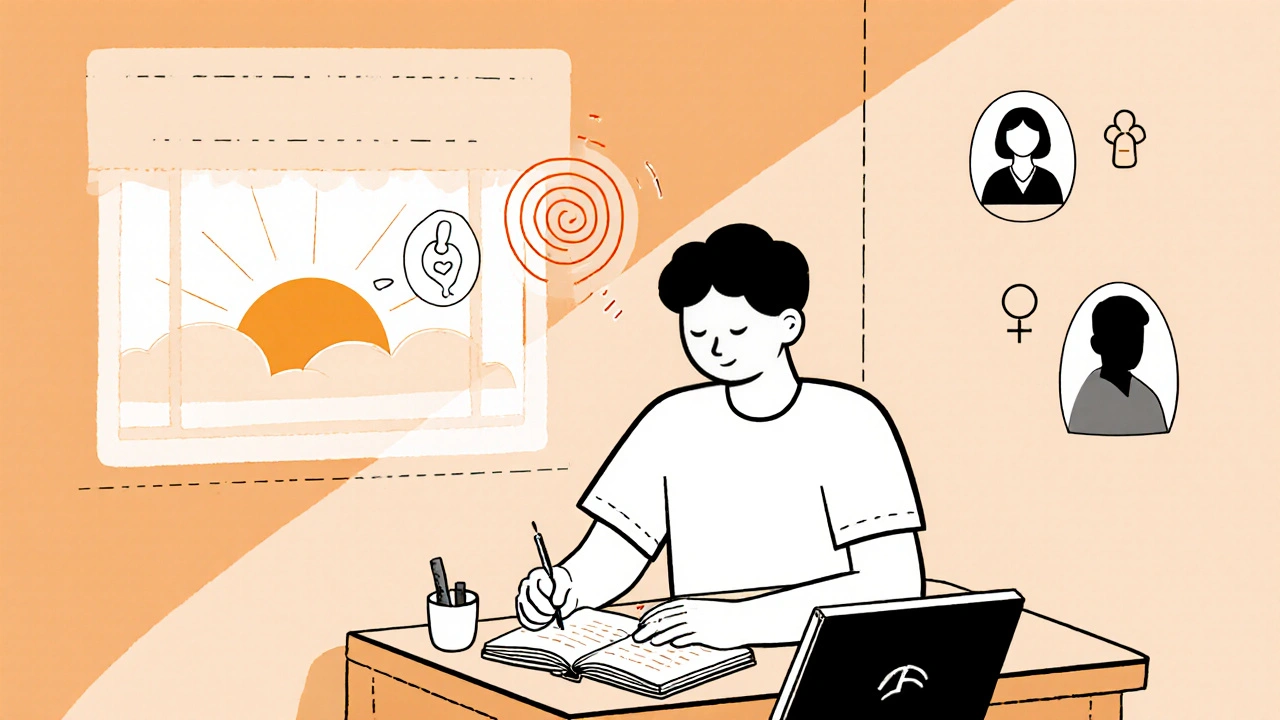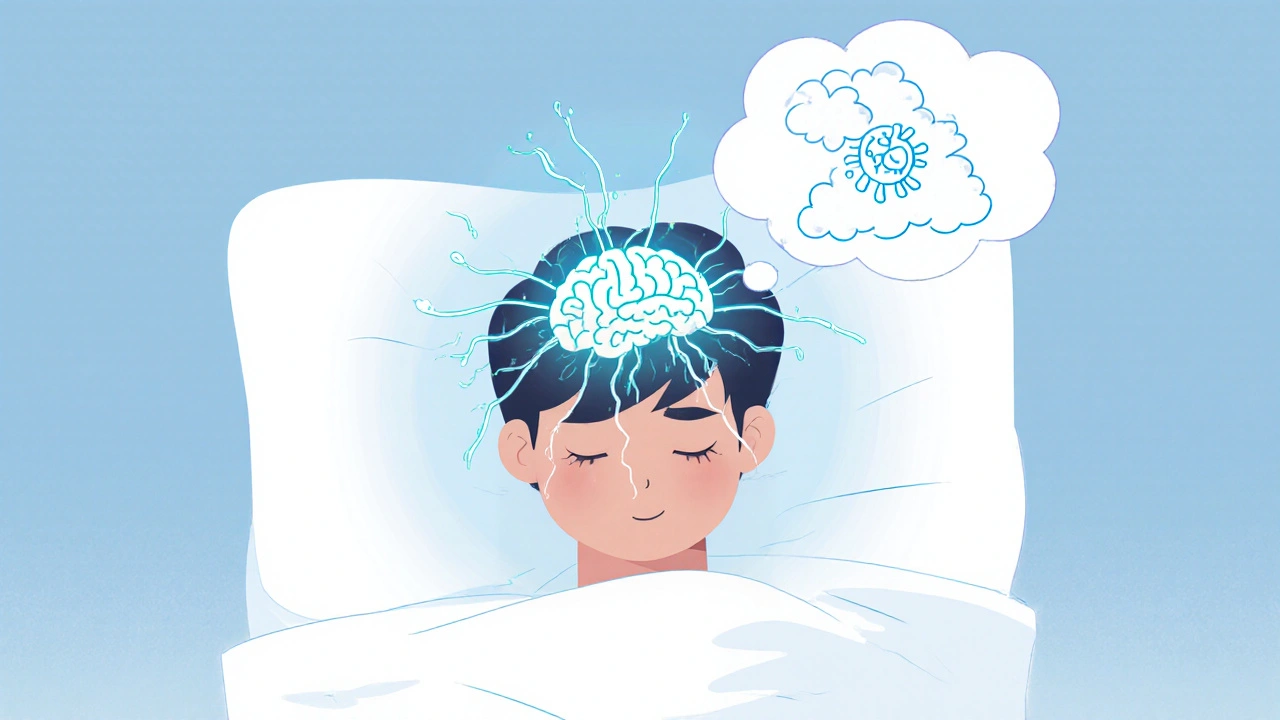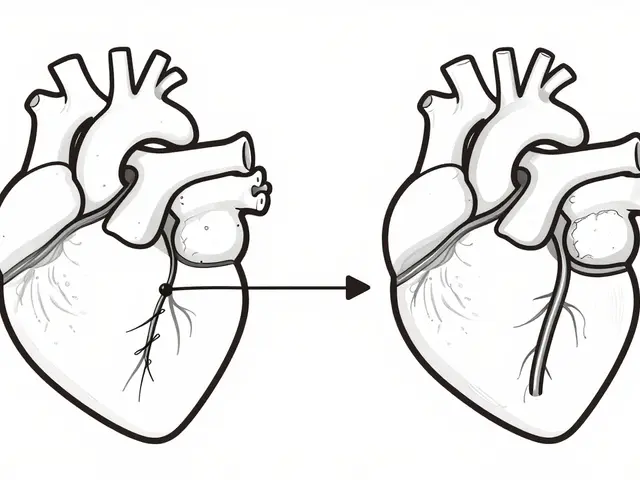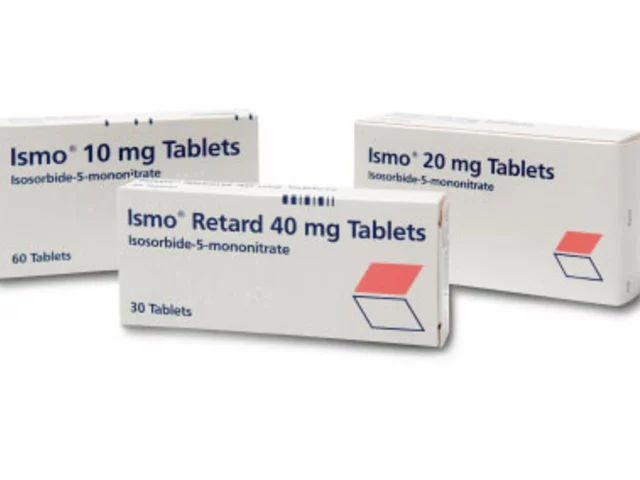When Sickness refers to any deviation from normal health caused by disease, injury, or infection strikes, the first thing most people think about is the physical pain or the need for medication. Yet the mind doesn’t stay idle while the body battles. The ripple effect on mental health and overall well‑being can be just as powerful, sometimes lingering long after the last prescription is finished.
Why the Link Between Physical Illness and Mental Health Matters
Understanding the connection helps you recognize warning signs early, choose coping tactics that actually work, and avoid a downward spiral that could turn a manageable condition into a chronic mental‑health challenge. The brain and immune system talk to each other through hormones, neurotransmitters, and inflammatory markers. When one side is stressed, the other usually feels the impact.
Physical Triggers That Shape Mental States
- Inflammation: Cytokines released during infection can cross the blood‑brain barrier, altering mood and cognition.
- Pain: Persistent pain signals drain emotional reserves and make feelings of hopelessness more likely.
- Sleep disruption: Fever, coughing, or medication side effects often rob you of deep sleep, which is a key mood regulator.
- Hormonal shifts: Illness‑induced changes in cortisol and adrenaline can trigger anxiety spikes.
Each of these pathways can ignite symptoms that look a lot like clinical depression or anxiety, even though they originated from a physical problem.
Acute vs. Chronic Illness: Different Mental‑Health Footprints
Not all illnesses affect the mind in the same way. Short‑term (acute) conditions usually cause a brief emotional dip, while long‑standing (chronic) diseases often reshape a person’s outlook permanently.
| Factor | Acute Illness | Chronic Illness |
|---|---|---|
| Duration of mood change | Days to weeks | Months to years |
| Common emotions | Frustration, temporary sadness | Depression, chronic anxiety, grief |
| Risk of mental‑health disorder | Low to moderate | High; up to 60% develop a diagnosable condition |
| Coping demands | Short‑term distraction, medication adherence | Long‑term lifestyle adjustments, support networks |
| Typical support | Family check‑ins, brief counseling | Regular therapy, peer groups, specialist mental‑health services |
Common Mental‑Health Issues That Surface During Illness
While every person reacts differently, research consistently highlights a few mental‑health conditions that flare up when the body is sick.
- Depression: Feelings of helplessness, loss of interest, and low energy often mirror the fatigue caused by the disease itself.
- Anxiety: Worries about recovery, side‑effects, and potential complications can amplify heart‑rate spikes already induced by the illness.
- Post‑traumatic stress: Severe infections or invasive procedures sometimes leave a lingering sense of threat, causing flashbacks or hyper‑vigilance.
- Adjustment disorder: The sudden change in daily routine or identity (e.g., becoming a “patient”) can trigger emotional turbulence.
Knowing which symptom fits which label helps you choose the right professional help, whether that’s a therapist, a psychiatrist, or a primary‑care doctor trained in mental‑health screening.
Practical Strategies to Safeguard Your Well‑Being
Below are evidence‑backed tactics you can start using the moment you notice the first mental‑health warning sign.
- Monitor Your Mood: Keep a simple journal or use a mood‑tracking app. Recording spikes in sadness or anxiety helps you spot patterns linked to medication times, pain peaks, or sleep loss.
- Stay Physically Active (as Able): Even gentle stretching or short walks raise endorphin levels and improve circulation, both of which counteract inflammation‑driven mood dips.
- Prioritize Sleep Hygiene: Use earplugs, black‑out curtains, and a consistent bedtime routine to offset illness‑related sleep interruptions.
- Limit News Overload: While staying informed is good, constant health‑crisis headlines can heighten fear. Set a specific time window for checking updates.
- Leverage Social Support: Share your experience with trusted friends or join an online community of people facing the same condition. Social validation reduces feelings of isolation.
- Practice Mindful Breathing: Simple 4‑7‑8 breathing reduces cortisol spikes, which are often elevated during pain episodes.
- Seek Professional Guidance Early: If mood symptoms linger beyond two weeks or interfere with treatment adherence, book an appointment with a mental‑health professional.
The Role of Healthcare Providers and Support Networks
Doctors, nurses, and allied health staff are increasingly trained to screen for mental‑health concerns during routine visits. Ask them about the following:
- Standardized depression and anxiety questionnaires (PHQ‑9, GAD‑7)
- Referral pathways to psychologists or social workers
- Medication interactions that might worsen mood (e.g., steroids)
Family members can also act as informal monitors. A simple question like, “How have you felt emotionally this week?” often opens the door to deeper conversations.

When to Call for Specialist Help
Urgent signs include:
- Thoughts of self‑harm or suicide
- Severe panic attacks that feel uncontrollable
- Sudden, extreme mood swings that jeopardize medication compliance
If any of these appear, contact emergency services or a crisis helpline immediately. For less acute but persistent issues, schedule a mental‑health assessment within a month of symptom onset.
Quick Checklist: Protect Your Mental Health While Ill
- Log mood daily - note triggers and coping actions.
- Move at least 10 minutes a day, adjusting intensity to your energy level.
- Establish a wind‑down routine 30 minutes before bed.
- Set boundaries on health‑news consumption (e.g., 15 minutes at noon).
- Reach out to one friend or support group each week.
- Practice a breathing exercise twice daily.
- Schedule a mental‑health check‑in with your doctor if symptoms persist > 2 weeks.
Frequently Asked Questions
Can a short bout of flu really affect my mental health?
Yes. Even a mild viral infection can trigger inflammatory responses that lower serotonin levels, leading to temporary sadness or irritability. These symptoms usually fade as the fever breaks and sleep normalizes.
Why do chronic illnesses have a higher risk of depression?
Chronic disease brings ongoing pain, functional limitations, and constant medical appointments, which erode hope over time. The prolonged stress elevates cortisol, reshaping brain circuits that regulate mood, making depression more likely.
Is it safe to use over‑the‑counter sleep aids while I'm ill?
Sleep aids can interact with certain antibiotics or antihistamines, causing drowsiness or heart rhythm changes. Always check with your pharmacist or doctor before adding any new medication.
How can family members help without feeling overwhelmed?
Set realistic expectations: offer short, regular check‑ins rather than constant monitoring. Share caregiving duties with other relatives or enlist a community volunteer to give everyone needed breathing room.
When should I consider professional therapy?
If emotional symptoms linger beyond two weeks, interfere with daily tasks, or cause you to miss medical appointments, it’s time to talk to a therapist. Early intervention reduces the risk of chronic mental‑health problems.






Linda A
When illness knocks on the door, it's not just the body that answers-our thoughts echo in the hallway, lingering long after the fever fades. I often find myself wondering how much of our mental landscape is shaped by the silent chemistry of immune cells. The quiet moments, when pain subsides, can still feel like a storm inside our heads. It's a reminder that the mind and body are co‑authors of our story, each chapter influencing the next. So acknowledging that link feels like a small act of self‑compassion.
Joe Moore
Yo, have u ever thought the pharma giants are using our colds to test mind‑control meds? They push the pills, we get the side‑effects, and they track our moods like it's a big experiment. Stay woke.
Poornima Ganesan
The relationship between physical disease and mental health is not a novel concept; it has been documented for centuries, from Hippocratic treatises to modern neuroimmunology journals. Inflammatory cytokines released during an infection act as messengers that cross the blood‑brain barrier, directly influencing neurotransmitter pathways associated with mood regulation. This biochemical cascade can precipitate depressive symptoms even in individuals with no prior psychiatric history. Moreover, persistent nociceptive input from chronic pain conditions perpetuates a state of heightened cortisol, which desensitizes the hippocampus and impairs emotional processing. Sleep disruption, a common by‑product of fever or medication side‑effects, further destabilizes the delicate balance of the monoamine system, resulting in irritability and anxiety. Hormonal fluctuations triggered by illness, especially elevated adrenaline, amplify the fight‑or‑flight response, making seemingly minor stressors feel catastrophic. Epidemiological studies consistently show that up to 60 % of patients with long‑standing illnesses develop diagnosable mental‑health disorders, underscoring the bidirectional nature of this interaction. Clinicians often overlook these psychosomatic signals, focusing solely on somatic treatment, which can inadvertently exacerbate the psychological burden. It's crucial to adopt a biopsychosocial model that integrates routine mood screening into standard medical visits. Patients should be encouraged to maintain a simple mood journal; tracking fluctuations can reveal patterns tied to medication timing or pain spikes. Gentle movement, such as daily stretching or short walks, stimulates endorphin release and combats inflammation‑induced mood dips. Prioritizing sleep hygiene-dark rooms, consistent bedtime, and limiting stimulants-helps restore the restorative phases of sleep that are essential for emotional regulation. Limiting exposure to sensationalist health news reduces unnecessary fear responses that can amplify cortisol levels. Social support, whether through trusted friends or condition‑specific online groups, provides validation and reduces feelings of isolation, a known risk factor for depression. Early referral to mental‑health professionals, particularly when symptoms persist beyond two weeks, has been shown to halve the risk of chronic mood disorders. In summary, the mind does not exist in isolation from the body; every bout of illness carries a potential psychological footprint that warrants proactive care.
Emma Williams
I totally agree that keeping a simple mood log can be a game changer it helps spot patterns without overthinking
Stephanie Zaragoza
Indeed, the evidence presented in the article-particularly the data linking chronic inflammation to elevated cortisol levels-is compelling; however, one must also consider the confounding variables, such as pre‑existing anxiety disorders, socioeconomic status, and access to healthcare, all of which can modulate the observed outcomes. Furthermore, the recommendation to incorporate light physical activity aligns with current guidelines, yet the dosage and intensity should be individualized, taking into account the patient’s comorbidities and functional capacity. In practice, clinicians might employ standardized tools, for example the PHQ‑9 and GAD‑7, to systematically screen for depressive and anxiety symptoms, thereby facilitating timely referral to mental‑health specialists. Lastly, the emphasis on sleep hygiene cannot be overstated; consistent bedtime routines, reduced exposure to blue light, and appropriate use of sleep‑aid medications-when indicated-form the cornerstone of a holistic treatment approach.
James Mali
Illness reminds us that the body is a vessel, and the mind the compass-when turbulence hits, we must recalibrate our inner north star 😊. A mindful pause can reveal what truly matters beyond the prescriptions.
Albert Fernàndez Chacón
Good point about the PHQ‑9 and GAD‑7. I’ve seen those tools help patients flag mood shifts early, which can prevent bigger setbacks.
Liberty Moneybomb
The medical establishment doesn’t want us to connect the dots; they hide the true impact of vaccines on our psyche while pushing profit.
alex montana
Really??, the truth is out there-think about it, the data is being censored; it’s not a coincidence that they silence dissenting voices
Wyatt Schwindt
Take it one day at a time and keep checking in with yourself.
Fabian Märkl
Hey everyone! Remember to breathe deeply and move a little each day 🌟🚶♂️. It makes a huge difference in mood and stamina!
Natala Storczyk
Absolutely!!!, but let’s not forget that our nation’s resilience is built on strong families and community support; without that, no amount of breathing exercises will save us from the looming mental‑health crisis!!!